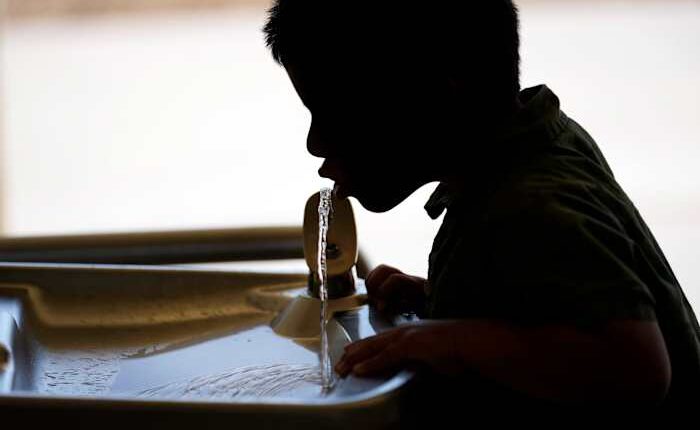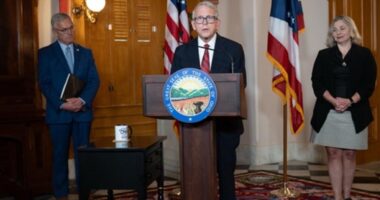
Utah is paving the way as the first state to propose a complete prohibition on fluoride in public water systems through a bill that eliminates the option for cities or communities to choose to include the tooth decay-preventing mineral.
This initiative in Utah is significant as it could establish a precedent nationwide. It comes at a time when Robert F. Kennedy Jr., the new federal health secretary, has raised doubts about water fluoridation, a practice praised as one of the major public health accomplishments in recent history.
The bill in Utah has successfully passed all legislative stages as of Friday and is now awaiting approval from Governor Spencer Cox. It remains uncertain whether Cox will endorse the bill, as his spokesperson has yet to comment on the matter.
Already, some cities across the country have tossed fluoride from their water, and other municipalities are considering doing the same. A few months ago, a federal judge ordered the U.S. Environmental Protection Agency to regulate fluoride in drinking water because high levels could pose a risk to kids’ intellectual development.
Utah ranked 44th in the nation for the percentage of residents that receive fluoridated water, according to data published in 2022 by U.S. Centers for Disease Control and Prevention from all 50 states and the District of Columbia. About two in five Utah residents served by community water systems received fluoridated water.
Lawmakers who backed the bill, which was sponsored by state Republican Rep. Stephanie Gricius and state Sen. Kirk Cullimore, said putting fluoride in the water is too expensive.
“I don’t dispute that there can be positive benefits from fluoride, which is why the bill also includes a deregulation of the prescription,” Gricius said in a text message to The Associated Press, referencing a fluoride pill. “This isn’t anti-fluoride legislation, it is pro-informed consent and individual choice.”
Fluoridation is the the most cost effective way to prevent tooth decay on a large scale, said Lorna Koci, who chairs the Utah Oral Health Coalition.
“I think the anti-fluoride people, they’re latching onto Kennedy’s opportunity with his beliefs and using that now as a way to kind of get in the door to stop water fluoridation,” Koci said.
She added that fluoridated public water is often the only form of preventive dental care for some people, and the impacts may be most visible in low-income Utah residents.
Fluoride strengthens the teeth and reduces cavities by replacing minerals lost during normal wear and tear, according to the U.S. Centers for Disease Control and Prevention. And nearly two-thirds of the U.S. population drinks fluoridated water.
Out of the 484 Utah water systems that reported data to the CDC in 2024, only 66 fluoridated their water, an Associated Press analysis showed. The largest was the state’s biggest city, Salt Lake City.
In 2023, voters in Brigham City, north of Salt Lake City, struck down a measure that would have removed fluoride from its public water supplies. The proposal was defeated by more than a two-to-one margin.
Val Radmall, the executive director of the Utah Dental Association, said he and others met with Gricius to try to get her to rethink the bill. He worked in a non-fluoridated community for three decades, and said the lack of fluoride showed.
“I’d have a patient come in without cavities or anything else like that, and I’d say, ’You didn’t grow up here. Where did you grow up?’ … because everybody here has lots of cavities!” he said.
___
AP data journalist Kasturi Pananjady contributed to this report.
___
The Associated Press Health and Science Department receives support from the Howard Hughes Medical Institute’s Science and Educational Media Group and the Robert Wood Johnson Foundation. The AP is solely responsible for all content.
Copyright 2025 The Associated Press. All rights reserved. This material may not be published, broadcast, rewritten or redistributed without permission.
















